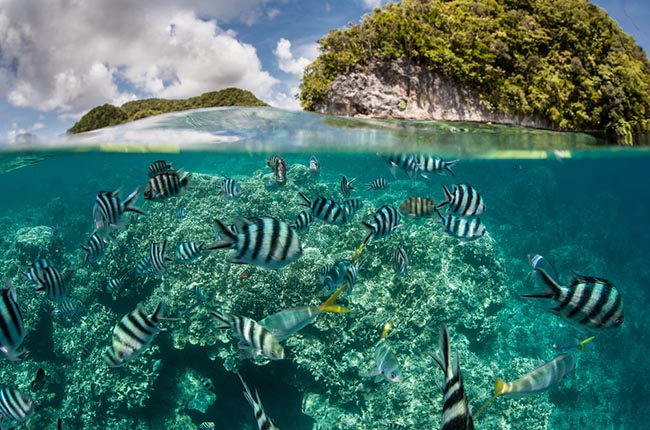New Oceanography Degree Prepares Students To Tackle Challenges Facing The World’s Oceans
Responding to new challenges impacting the Earth’s oceans, Texas A&M University’s Department of Oceanography will offer a new undergraduate degree in oceanography.
The new bachelor of science degree in oceanography is necessary for several reasons, officials say.
“The exploration and exploitation of energy resources in deeper waters offshore, the continued growth of human populations along the coast, and growing efforts to predict and mitigate coastal hazards such as hurricanes, tsunamis, oil spills, and harmful algal blooms are driving an increase in the need and opportunities for well-trained ocean scientists,” says Shari Yvon-Lewis, acting department head of oceanography.
“We are extremely excited to offer the new bachelor of science degree in oceanography. This new degree is tailored to providing skills for new oceanography-related jobs emerging as we tap further into the resources provided by the ocean, as well as skills that are transferable to a wide array of technical careers.
“This new degree will provide students with the skills they need to go directly into the workforce as well as provide a strong STEM (science, technology, engineering and math) foundation for students wanting to pursue an advanced degree. We have built professional development opportunities into the curriculum and provide opportunities for study abroad and internships.”
https://today.tamu.edu/2015/06/05/pacific-mystery-coral-reefs-thriving-but-how/
The new major will provide education and training in one of three areas of concentration: ocean observing systems and technology; ocean climate and marine ecosystem science and health.
Some experts say geosciences could be the defining scientific discipline of the 21st century, noting that human society of the future depends more on innovation and application of discovery in the geosciences than on any other discipline. The field is essential to solving society’s critical challenges – global climate change, air and water quality, and adequate energy and food supplies.
For more information, about the new degree, go to http://ocean.tamu.edu/academics/degrees/index.html.
#####
Contact: Robyn Blackmon, communications manager, College of Geosciences, at (979) 845-6324 or robynblackmon@tamu.edu or Keith Randall, News & Information Services, at (979) 845-4644or keith-randall@tamu.edu
###
About Research at Texas A&M University: As one of the world’s leading research institutions, Texas A&M is at the forefront in making significant contributions to scholarship and discovery, including that of science and technology. Research conducted at Texas A&M represented annual expenditures of more than $892.7 million in fiscal year 2016. Texas A&M ranked in the top 20 of the National Science Foundation’s Higher Education Research and Development survey (2015), based on expenditures of more than $866.6 million in fiscal year 2015. Texas A&M’s research creates new knowledge that provides basic, fundamental and applied contributions resulting, in many cases, in economic benefits to the state, nation and world. To learn more, visit http://research.tamu.edu.
For more news about Texas A&M University, see https://today.tamu.edu/.
Follow us on Twitter at https://twitter.com/TAMU






